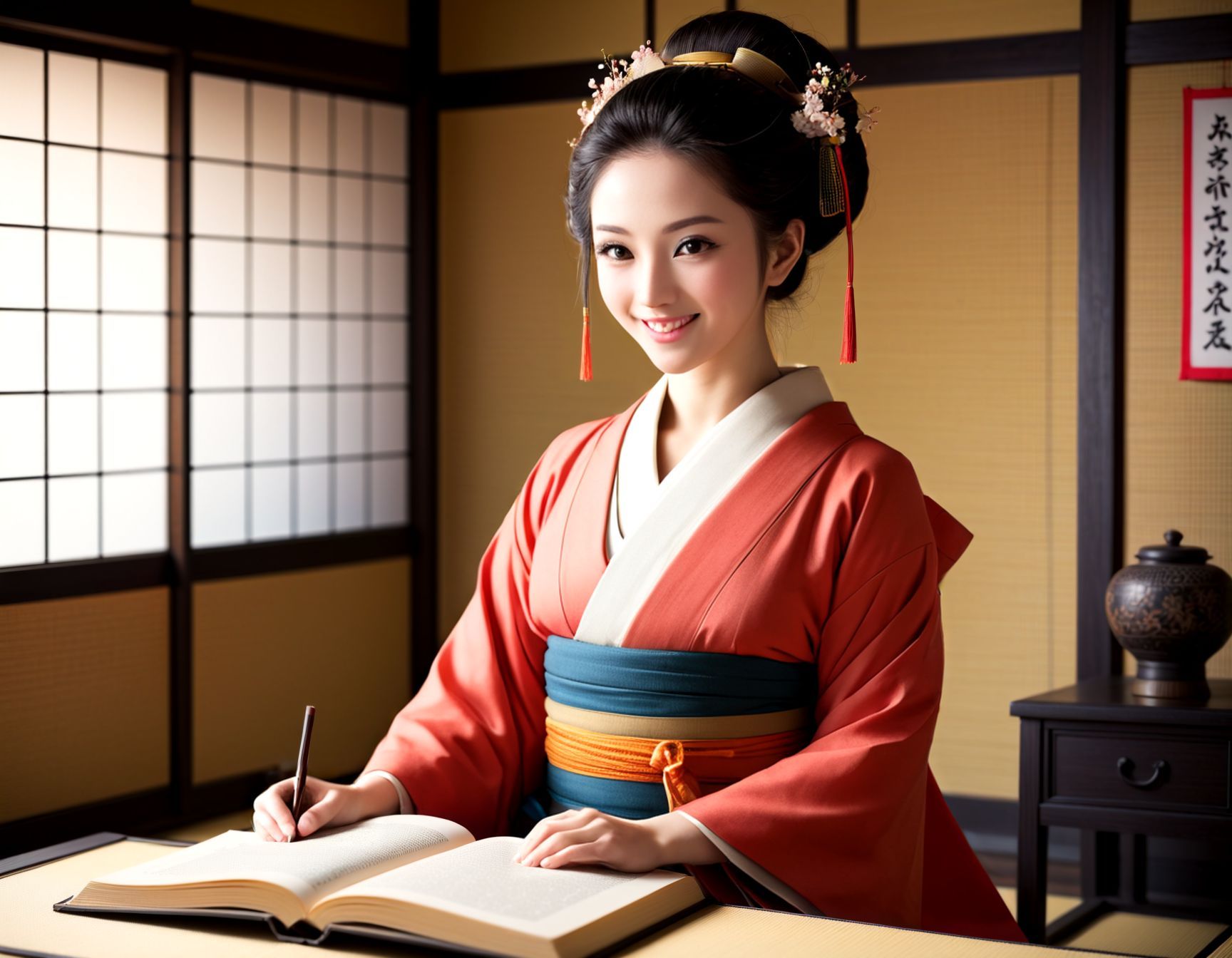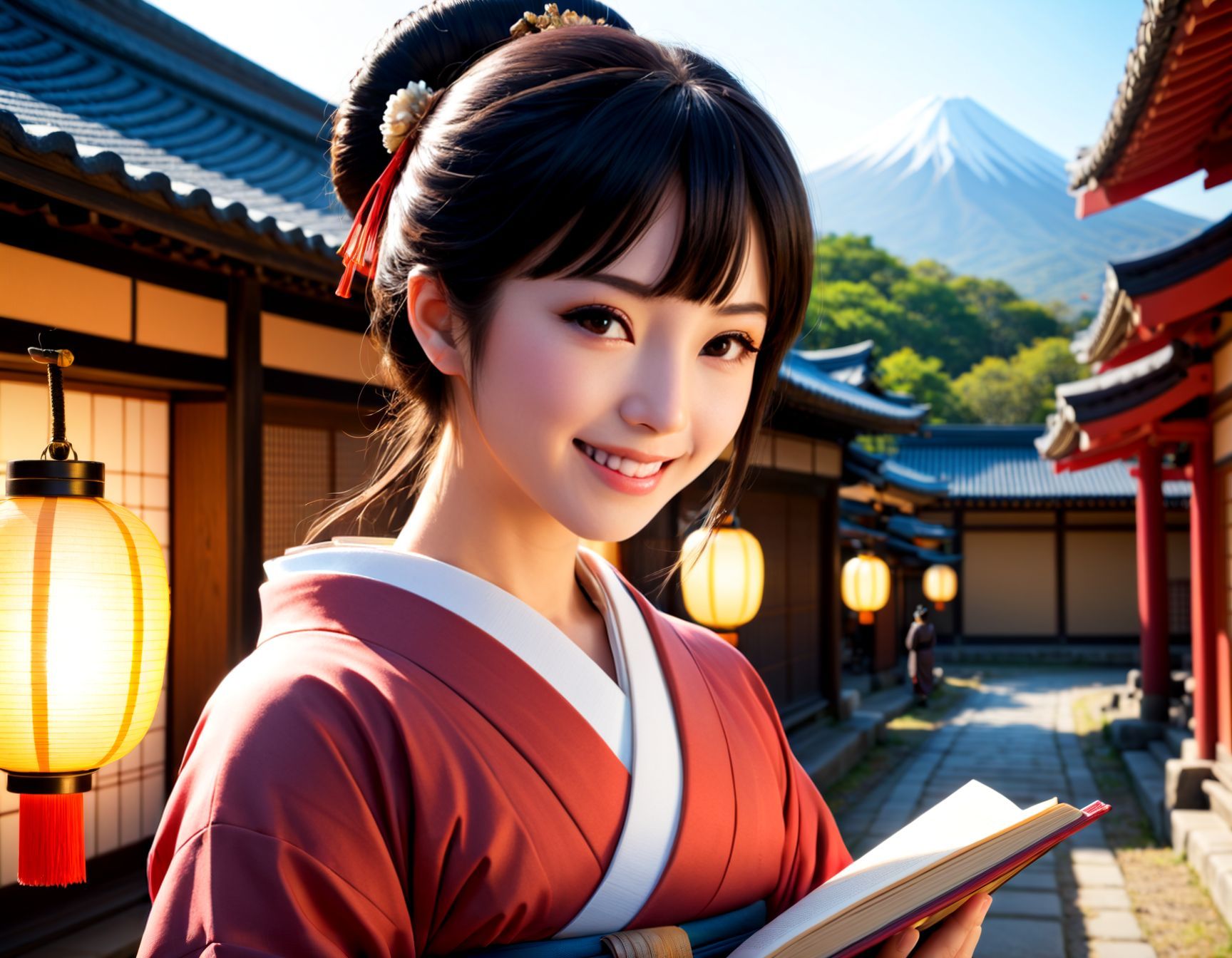Introduction.
The Later Han Book was written around the 5th century.
The “Chronicles of the Later Han Dynasty” and The compilers of the “Chronicles” was Fan Ye of the Southern Song dynasty.
The description of Japan is found in Volume 85, ‘Biographies of the Eastern barbarians’.

The following is a modern translation
Japan is located in the great sea to the southeast of Korea and lives in the mountains and fields, and there are roughly a hundred or so countries.
Since the destruction of Korea by Emperor Wu of the previous Han Dynasty, there have been some 30 countries where traffic has opened up.
All of these countries have had kings and have left a lineage from generation to generation.
The king of Wa is in Yamataikoku (邪馬臺國).
From the boundary of Rakurou-gun, it is 12,000 thousand li to Yamataikoku (邪馬臺國).
It is 7,000 miles to Kusakankoku at the north-west end of Wakoku.
It is located approximately to the east of Dongye Prefecture in Huiji County.
It is close to Zhuya(朱崖) and Dan’er, Hainan(儋耳).
As such, many of its laws and customs are the same.
The soil is suitable for growing rice, hemp and mulberry for sericulture, and it knows how to spin yarn and weave cloth, producing silk cloth.
The area produces white and blue jade, and yields tan from the mountains.
The climate is mild and vegetables can be harvested both in winter and summer.
There are no cattle, horses, tigers, leopards, sheep or magpies.
They are armed with spears, shields, wooden and bamboo bows, and use animal bones as arrowheads.
All adult men have tattoos on their faces and bodies.

The position and size of the tattoos, left, right, top and bottom, show the difference in status.
All men wear a long cloth wrapped and tied horizontally.
Women wear their hair long and tied up in a bun and put their head through a piece of cloth made into a single garment.
They also decorate their bodies with tanzhu, just as white powder is used in China.
There are castle fences and mansions, and parents and siblings live separately.
No distinction is made between men and women even when meeting together.
Eating and drinking are done with hands and beans.
The custom is for everyone to go barefoot.
In front of people of high status, they crouch down to show respect.
The nature of the people there is to like to drink.
There are many old people, many of whom are over 100 years old.
There are many women in the country, and those of high rank have four or five wives, and even others have two or three wives.

Women are neither unfaithful nor jealous.
Nor do any of them steal, and they rarely fight in lawsuits.
Those who break the law shall forfeit their wives and children and make them slaves, and those who are guilty of serious crimes shall have their families destroyed.
When a person dies, he mourns for ten days or more.
The family weeps and wails in grief and does not drink or eat.
Friends sing, dance and play music.
Bones are burnt and fortunetelling is carried out to determine good or bad luck.
When going on a journey or returning from a journey, or when crossing the sea, one must be accompanied by a person who does not comb his hair, wash his body, eat meat or bring a woman near him. This is called Zhiwei(持衰).
If the journey went well, he would be rewarded with goods and prizes, but if there was any harm, such as illness, he would be killed immediately by all the members of the group, on the grounds that he had not been respectful to them.
In the second year of the Kemmu Jungen (57 A.D.), the Nakoku (Japanese nation) came to pay tribute with goods.

The messenger referred to himself as Taifu.
Nakoku is located in the southernmost part of Japan.
Emperor Kwangmu gave him a sealed cordon.
In the first year of the reign of Emperor An (107 A.D.), the kings of Yamato, including Shuasheng(帥升), presented 160 slaves and wished to present them to the emperor.
During the reigns of Emperor Emperor Huan (reigned 146-167 A.D.) and Emperor Ling (reigned 168-189 A.D.), Japan was in a state of great civil war and they attacked each other, and for a long time there was no king to rule the whole country.
There was a woman named Himiko, who remained unmarried even when she reached her seniority.
She was well versed in the ways of the demons and successfully led her people through mysterious arts.
The king’s courtesans and assistants were all appointed to her throne.
There were a thousand maids of honour and handmaidens, but very few of them met her face to face.
A man alone looked after the food and drink, and was the intermediary for orders and instructions.
Everyday dwellings, palaces, towers and city fences were guarded by soldiers.
Laws were extremely strict.
Crossing the sea more than 1,000 ri east of the Queen’s Land, you arrive in Kunukoku.
The people are all Japanese, but they do not belong to the Queen Country.

If you go south from the Queen Country for about 4,000 ri, you will arrive at Shujukoku.
The people there are only three or four shaku tall.
A year’s boat ride southeast from Shujukoku brings you to rakoku and kokusikoku.
This is the only place where there is traffic.
The land to the east of Huai-cheon-gun is home to the Dongju people, who are divided into more than 20 countries.
There are also the barbarian provinces of land of Yi and Chan.
According to legend, Qin Shi Huangdi dispatched the local warlord Xu Fu, accompanied by thousands of young men and women, to go out to sea in search of the sacred hermit of Penglai, but failed.
Fearing that he would be put to death for his failure, Xu Fu finally decided to stay in the area.
Since then, he has continued to live here for generations, and the number of households has grown to several tens of thousands.
Its people sometimes come to Huiji County to do business.
Some people from Huiji County Dongye, are swept out to sea by strong winds and end up in land of Chan.
The place is so far away that it is impossible to come and go.

(Note.)
This statement is not necessarily correct. Please check important information.


